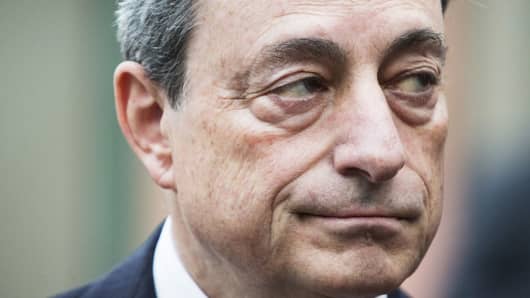I never thought I would say this. But reflecting on the past 48 hours - and the euphoria in financial markets around the "Trump Trade" on an expected ramp up in infrastructure spending, tax cuts and deregulation of the banking sector - I cannot help but wonder whether this reflation trade is exactly what the doctor ordered for the continually ailing European economy.
The European Central Bank has for years been urging governments to alleviate the burden on monetary policy by engaging in structural reforms.
The bank, and its president Mario Draghi, has been desperately trying to reflate the European economy through a number of stimulus measures that go by cumbersome acronyms such as PSPP and TLTRO. The slump in oil prices has created another unwelcome headache for the ECB by keeping a lid on headline inflation. Only last month we have seen EU inflation creep above 0.5 percent.



